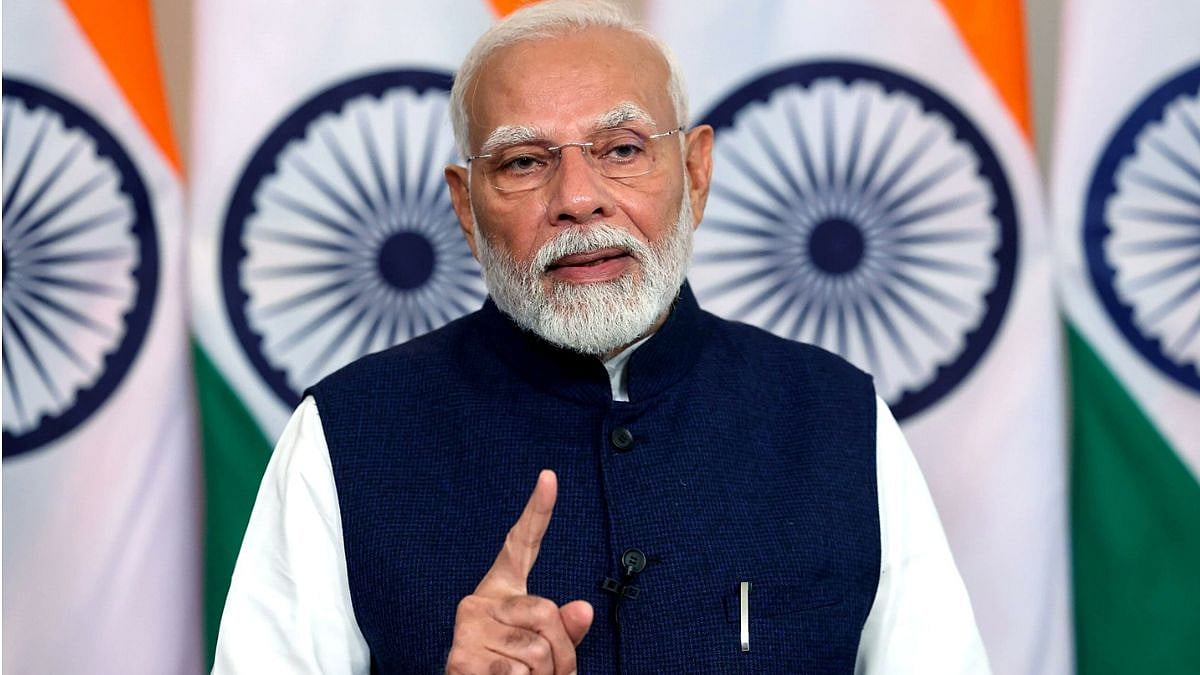Rahul Gandhi is arguably the best punching bag for left-liberals in India—and rightly so. He, his party, and their allies failed to win the Haryana and Maharashtra assembly elections, which had seemed like a cakewalk for the opposition after the Lok Sabha elections. Yet, if the current parliamentary debates and the 2024 election discourse are any indication, Rahul deserves credit for forcing the BJP and its ideological parent, the RSS, to follow the path he laid. He created a narrative the Modi government could no longer ignore.
India’s obsession with electoral outcomes often overshadows the larger essence of democracy. The strength or weakness of a political leader or party is solely judged by elections won or lost. But democracy is more than elections; it thrives on conversations, debates, discussions, and holding the government accountable.
Noted writer Yuval Noah Harari has argued that democracy is about dialogue. He explains that in ancient times, the lack of information technology made widespread conversation impossible, limiting democracy to city-states. But with advances in communication, democracy flourished as old systems of monarchy crumbled. Since independence, India has sustained democracy because its conversations—between communities, institutions, and the government and opposition—remained vibrant. Although this space has shrunk since 2014, it hasn’t disappeared entirely.
Even the fierce, acrimonious arguments between the government and the opposition are a form of conversation. These debates have forced the ruling regime to concede ground on critical issues like the caste census and the Constitution. For this, Rahul Gandhi deserves credit.
Rahul championed the cause of a caste census during the Karnataka assembly elections, demanding that the Modi government reveal the socio-economic profiles of all castes. This data, he argued, would enable policies that uplift marginalized communities left behind since independence. Initially, the Modi government and Hindutva forces resisted, seeing caste census as a threat to the project of Hindu unity. The RSS has long held that caste divisions prevented Hindus from uniting, which allowed centuries of foreign rule. However, BJP and RSS now recognize that ignoring the aspirations of OBCs (nearly 50% of the population) and Dalits (about 20%) could have grave electoral consequences.
In a significant shift, the RSS recently acknowledged the necessity of a caste census—though only for welfare purposes, not political reasons. While some view this as strategic posturing, the caste census debate has undeniably sparked a new caste consciousness that cannot be easily dismissed.
Similarly, Rahul Gandhi’s “Save the Constitution” campaign painted the BJP as anti-Constitution and anti-democracy. During the elections, Rahul leveraged BJP leaders' claims of needing 400 seats to "change the Constitution" to rally Dalits and OBCs—key beneficiaries of affirmative action enshrined in the Constitution. The RSS’s historical hostility to the Constitution further reinforced this narrative. Even in March 2000, RSS chief K.S. Sudarshan advocated scrapping the Constitution. Such statements have resurfaced to haunt the BJP, forcing Prime Minister Modi to publicly affirm the Constitution’s sanctity.
Modi, a seasoned politician, knows the risks of alienating Dalits and OBCs, whose support is critical for BJP’s electoral prospects. In the ongoing parliamentary session, Modi tried to turn the tables by accusing Congress of undermining the Constitution during the Emergency and through repeated amendments. But the BJP’s nervousness about the Constitution debate is evident.
The opposition’s role in a democracy extends beyond contesting elections. It must challenge the government when it veers off course. The intertwined debates on the caste census and the Constitution challenge the ideological foundations of the BJP and RSS. The caste census seeks justice for marginalized communities, while the Constitution ensures that India cannot regress to a hierarchical society.
Rahul Gandhi’s efforts have forced the BJP and RSS to commit, at least publicly, to social justice and constitutional values. While left-liberals may hesitate to acknowledge his contributions, the opposition has succeeded in making the government accountable—a critical democratic achievement.
The writer is Co-Founder, SatyaHindi.com, and author of Hindu Rashtra. He tweets at @ashutosh83B










